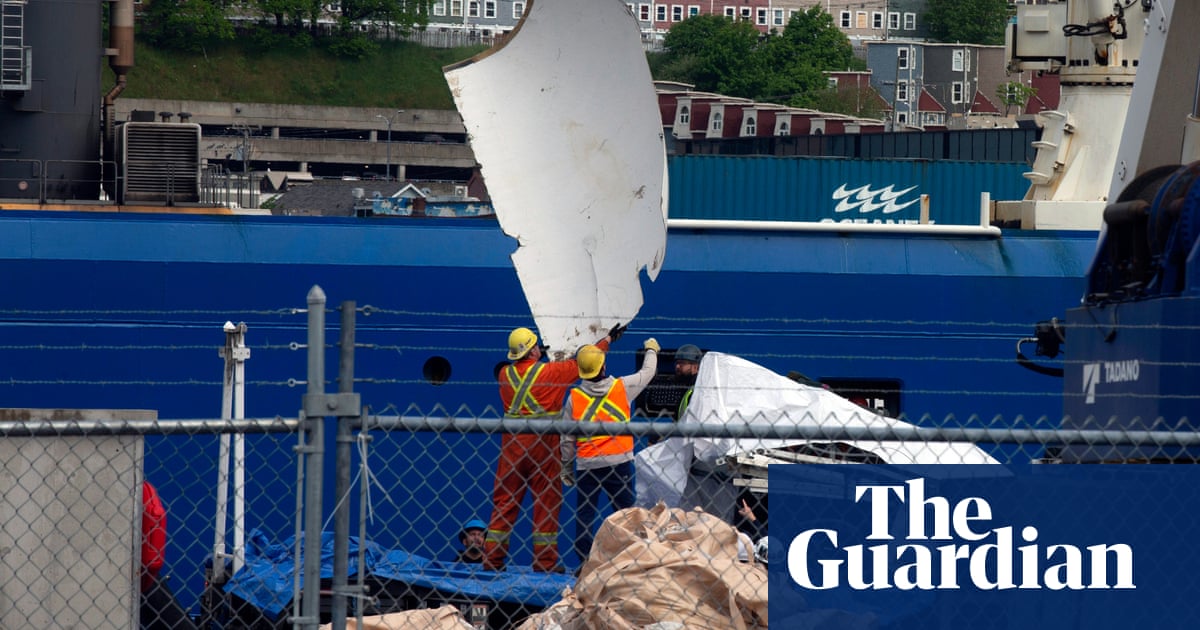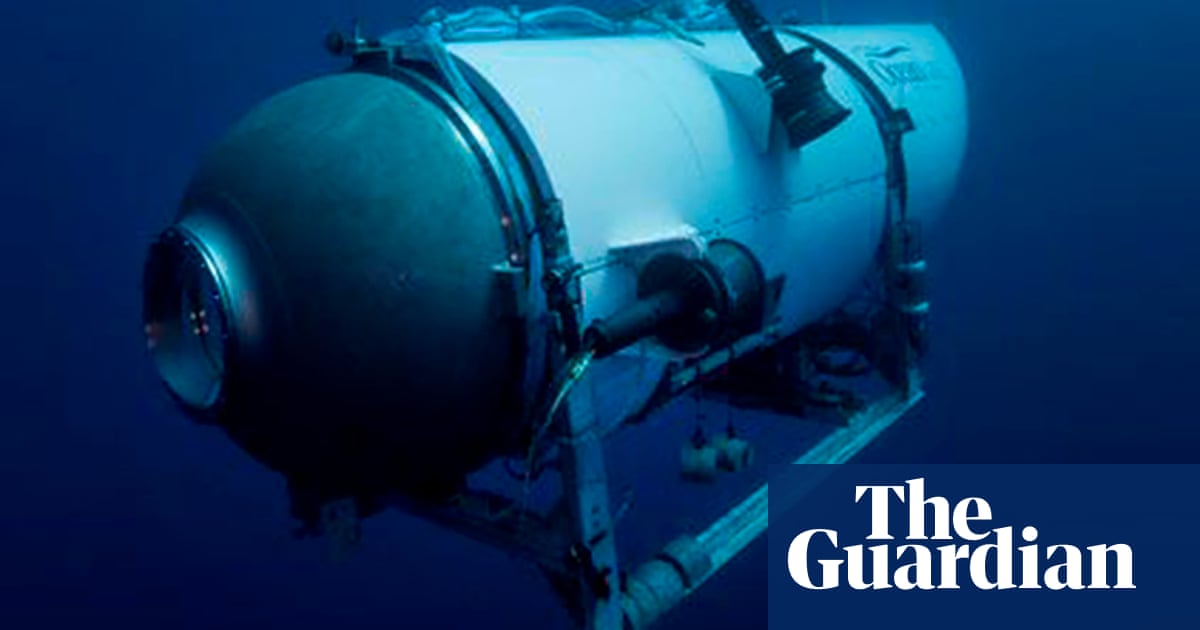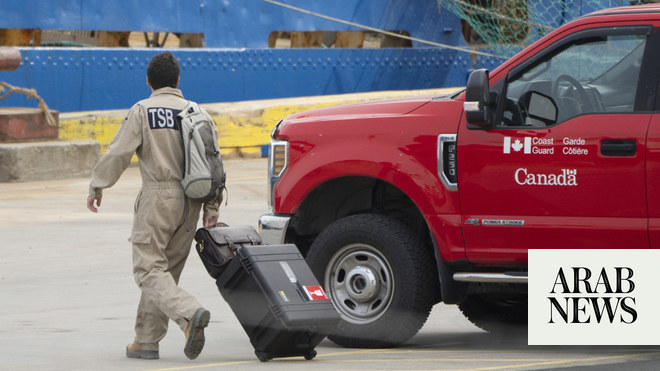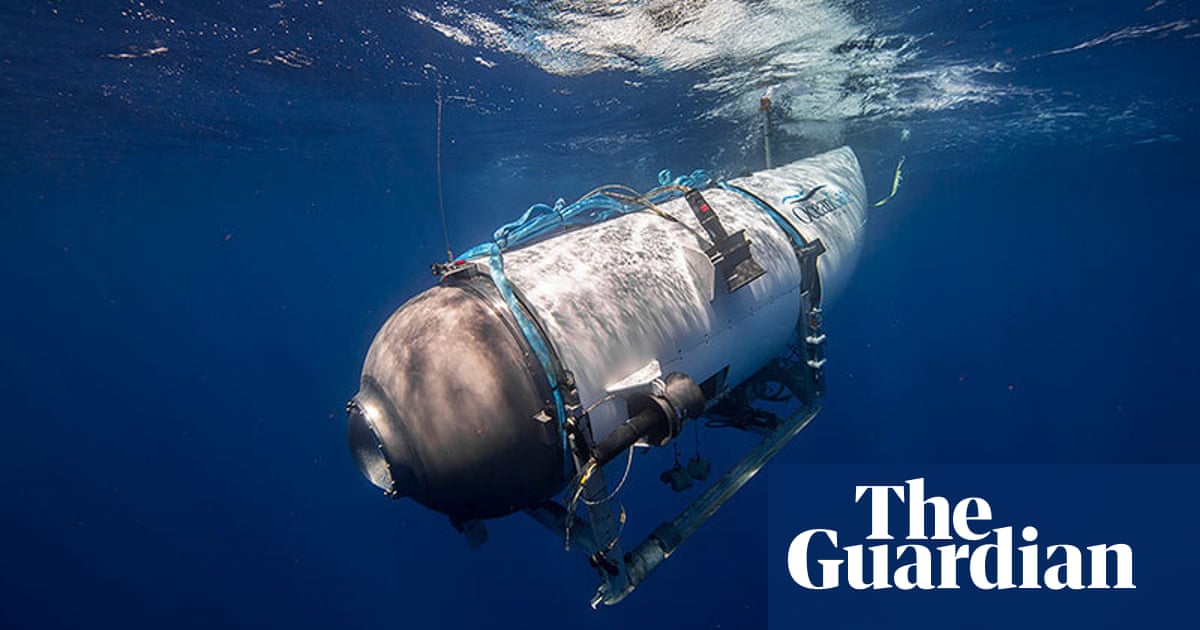
Presumed human remains have been recovered from within the wreckage of the Titan, the submersible that imploded on a voyage to the Titanic earlier this month, the US Coast Guard reported on Wednesday.
The Coast Guard will transport the evidence recovered from the north Atlantic to a US port where medical professionals will conduct a formal analysis of the remains, officials said.
“The evidence will provide investigators from several international jurisdictions with critical insights into the cause of this tragedy. There is still a substantial amount of work to be done to understand the factors that led to the catastrophic loss of the Titan and help ensure a similar tragedy does not occur again,” said Jason Neubauer, a chair captain with the Marine Board of Investigation.
The news came nearly a week after authorities announced they had found the wreckage of the craft, which disappeared while attempting to descend to the Titanic wreck two miles below the surface, following an international search and rescue effort. The five crew members onboard the submersible were probably killed instantly in a “catastrophic implosion”, the Coast Guard said last week.
Pieces of the mangled craft were brought ashore in Newfoundland, Canada, on Wednesday morning, evidence that officials said would assist in an investigation into the tragedy and answer questions about the craft’s experimental design, safety standards and lack of certification.
Large pieces of metal resembling parts of the Titan’s white hull and landing skids, designed for touching down on the seabed, arrived in St John’s on Wednesday, via the Horizon Arctic, a Canadian ship.
Twisted cables and other items likely involved in the mechanics of the 22ft (6.7-meter) submersible were among the wreckage recovered from the craft, which was launched from a ship on 18 June , and lost contact with the surface one hour and 45 minutes later.
Retrieving the debris is a key part of the investigation to establish what went wrong. Industry experts have long had doubts about the design of the craft and raised questions about the safety record of OceanGate, the US company that operated the submersible.
Prior to the wreckage being found on the ocean floor, not far from the Titanic wreck itself, the world had waited with bated breath for news of the vessel. Many millions tuned in to media coverage to see if the sub would be found before its oxygen supplies depleted.
Horizon Arctic used a remotely operated vehicle, or ROV, to search the ocean floor near the Titanic wreck for pieces of the submersible. Pelagic Research Services, a company with offices in Massachusetts and New York that owns the ROV, said in a statement on Wednesday that it had completed offshore operations.
Pelagic Research Services said its team is “still on mission” and cannot comment on the Titan investigation, which involves several government agencies in the US and Canada.
“They have been working around the clock now for 10 days, through the physical and mental challenges of this operation, and are anxious to finish the mission and return to their loved ones,” the company’s statement said.
One of the experts the Coast Guard consulted with during the search said analyzing the physical material of recovered debris could reveal important clues about what happened to the Titan. And there could be electronic data, said Carl Hartsfield of the Woods Hole Oceanographic Institution.
“Certainly all the instruments on any deep sea vehicle, they record data. They pass up data. So the question is, is there any data available? And I really don’t know the answer to that question,” he said on Monday.
The National Transportation Safety Board has said the Coast Guard has declared the loss of the Titan submersible to be a “major marine casualty” and the Coast Guard will lead the investigation.
OceanGate Expeditions, the company that owned and operated the Titan, is based in Everett, Washington, but the submersible was registered in the Bahamas. The company closed when the Titan was found.
Meanwhile, the Titan’s mother ship, the Polar Prince, was from Canada, and those killed were from England, Pakistan, France and the US. The five were OceanGate CEO and pilot Stockton Rush; two members of a prominent Pakistani family, Shahzada Dawood and his son Suleman; British adventurer Hamish Harding; and French Titanic expert Paul-Henri Nargeolet.












